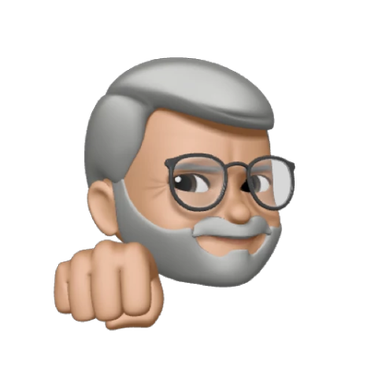Book Review: Zero to One by Peter Thiel
"We are in a deadly race between politics and technology."—Peter Thiel
There he is, finally. The visionary mentor of the likes of Vitalik Buterin, St. Peter of Silicon Valley, according to George Gilder. Or, in Jonathan Taplin's eyes, the Godfather of PayPal Mafia, the villain behind what's wrong about the Big Data economy, who rubbed shoulders with everyone that produced the likes of Youtube, LinkedIn, Yelp, and Palantir. This month's book review features Zero to One by Peter Thiel, who is not only a polarizing figure in the tech circles but also a contrarian full of contradictions. We previously saw Thiel through the eyes of other authors. Now, it is time to let the man speak for himself.
A math prodigy and an elite chess player in his age group at the age of 12, and one of the co-founders of a company that ushered in a new age of entrepreneurship, Thiel is a difficult figure to categorize. Here are of some of the contradictions that combine to make up the enigma that is Peter Thiel:
- He is the son of immigrant parents from Western Germany but cannot even stand the word "multiculturalism."
- Thiel demonstrated an open hostility to homosexuality for years, only to later declare his own homosexuality in 2003.
- He shuns politics, but that did not stop him from donating to Tea Party candidates in elections.
- Thiel doesn't think highly of the social media economy, which in his eyes cannot compare to the scientific achievements of the past. But he owes a significant part of his wealth to his investments in social media platforms.
What probably best defines Peter Thiel is his stubborn objection to feminism, multiculturalism, political correctness, and anything the liberal left endorses. For Thiel, the selfish pursuit of happiness justifies every action. Politics is an obstacle to the progress of capitalism, but he seems to disregard the role of politics in resource allocation. He probably realizes that avoiding politics does not solve a thing, hence his donations to the Tea Party cause. Maybe he is just one of those people who likes to avoid anything that can challenge his convictions. Thiel looks like someone more interested in playing the conservative-minded contrarian than in genuinely changing our world.
A revolutionary committed to fighting evolution
Zero to One stems from a course on startups that Thiel taught at Stanford. The book's title is a clear allusion to creating something anew instead of growing or multiplying something already existing. In Thiel's eyes, there is no feat more significant than achieving a technological breakthrough, that is, making one out of zero. This attitude sums up what Thiel claims to stand for in business.
Peter Thiel's thinking seems to have been shaped by the consequences of the dot-com crash of the early 2000s. The crash eradicated the confidence in grandiose visions of technological progress and instead started an era of incremental modifications made to risk-free ideas that were proven to work. This incrementalism, epitomized by the "lean startup" philosophy and the Japanese-inspired scientific management school that values improvement through continuous process refinement, is the enemy of revolutionary entrepreneurship in Thiel's eyes. He opposes the intellectual struggle scholars have been waging to save innovation from the grasp of luck and instead throws his lot with "the great men" of the tech industry like Elon Musk, Mark Zuckerberg, Steve Jobs, and Bill Gates, who just happen to have the "it" factor.
If there is anything that Peter Thiel detests as much as multiculturalism, it must be competition. He regards competition as an extension of simple one-upmanship: Copying what works and fighting to defend the marginal advantage you gained vis-a-vis your competitors. Thiel argues that the education system is designed to foster this meaningless competition, goading people to chase empty academic credentials instead of nurturing their talent to revolutionize the world. He established his Thiel Fund solely to guide students from academic competition toward more productive areas. That's why he gives scholarships of $100,000 to twenty university dropouts under the age of twenty every year, the rebels who probably remind Thiel of a young math prodigy in the 1990s.
An ode to monopoly
Thiel loves his monopolies. He yearns for the days of scientific breakthroughs that took men to the moon or added decades to the average life span with a single invention like penicillin. He thinks monopolies offer the shortest route to such breakthroughs because nothing other than the promise of monopoly profits can incentivize expensive, ambitious projects. His advice to startup founders is to avoid competition like the plague and find a niche they can dominate from day one.
Being a libertarian, Thiel is not immune to usual libertarian themes. Taxes, regulations, and copyrights are bad. Monopolies are good because…. Yes, the mythical trickle-down economics. Does trickle-down economics really deliver on the promise of creating jobs, or does it benefit a small group of businessmen while the society at large has to feed on the bread crumbs?
However, the author fails to explain why the huge profits tech giants like Microsoft, Apple, Amazon, and Google reaped did not trickle down to fuel revolutionary progress but ended up being spent for political clout and lower corporate tax rates. If tech monopolies were to bring about world-changing breakthroughs, the plan doesn't seem to have worked so far.
Looking for greener pastures or just escapism?
Peter Thiel must have recognized that tech giants being run as per his philosophy have failed to deliver the goods we were promised. He must have realized that the industry he has been involved in and shaped with his money and ideas has taken us to the land of likes, dislikes, and retweets, instead of other galaxies. It must be to escape this reality that Thiel is investing in firms looking to reverse human aging, build anarchic off-shore communities, or develop computers that can replicate themselves. George Packer is probably right in arguing in his New Yorker piece that Peter Thiel —consciously or subconsciously—knows that this utopia offers very little to the public at large and is unlikely to make our lives better if he somehow got his way. That might also explain why Thiel devotes a substantial part of his book to convincing us that computers will not replace humans but complement them and that anybody opposing the endeavor of developing such sentient computers is a Luddite.
What's in it for the founders?
The book contains very few actionable insights for regular startup founders (unless you think "be like Elon" is good advice). "Avoid competition," "start with a niche you can dominate," and "take sales and distribution seriously as they can help you create a monopoly" are the ones that immediately come to mind. The seven questions he brings together for startup founders are good for a reality check before setting out to start a business. Additionally, his emphasis on the company culture and giving entrepreneurs free reign may resonate well with the startup ethos thriving today. However, Thiel seems to think that anything will sound like a law of nature if you utter it with enough confidence:
- "[That's why hiring] consultants doesn't work. Part-time employees don't work. Even working remotely should be avoided…"
- "[N]ever invest in a tech CEO that wears a suit."
- "Don't disrupt... Disruptors are people who look for trouble and find it. Disruptive kids get sent to the principal's office. Disruptive companies often pick fights they can't win."
For a book written by someone considered a genius, an accomplished entrepreneur, and an acclaimed investor, Zero to One imparts surprisingly little wisdom to its readers. Maybe that was the plan all along, as Thiel wanted nobody to learn his secret sauce. Or maybe there wasn't much wisdom, to begin with, other than a utopian political stance of a man who refuses to grow up. Regardless, there are more than a few scholars—the type Thiel despises—who have produced much better guides for entrepreneurs than the Godfather of the PayPal Mafia.




 Please
fill out this field
Please
fill out this field









